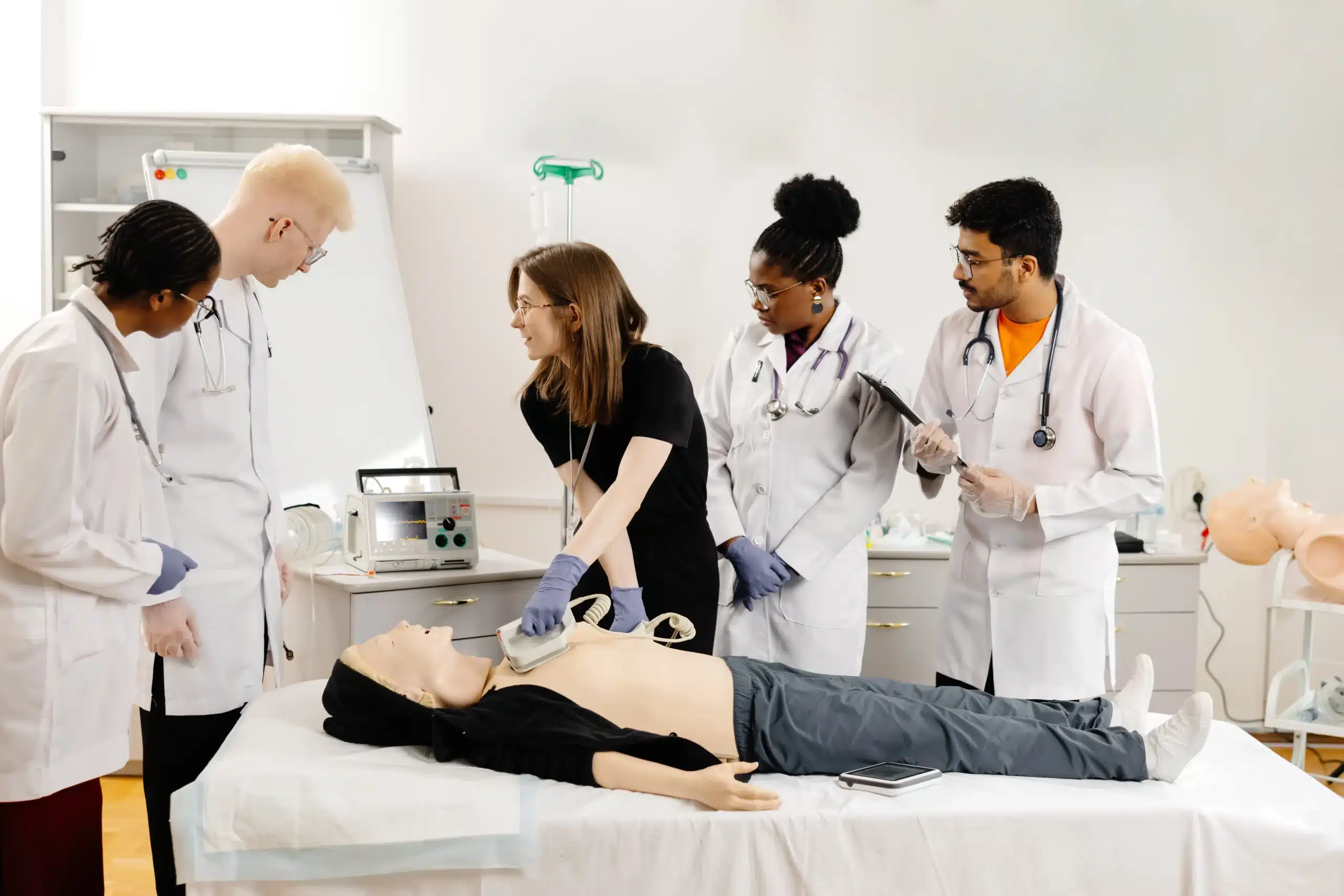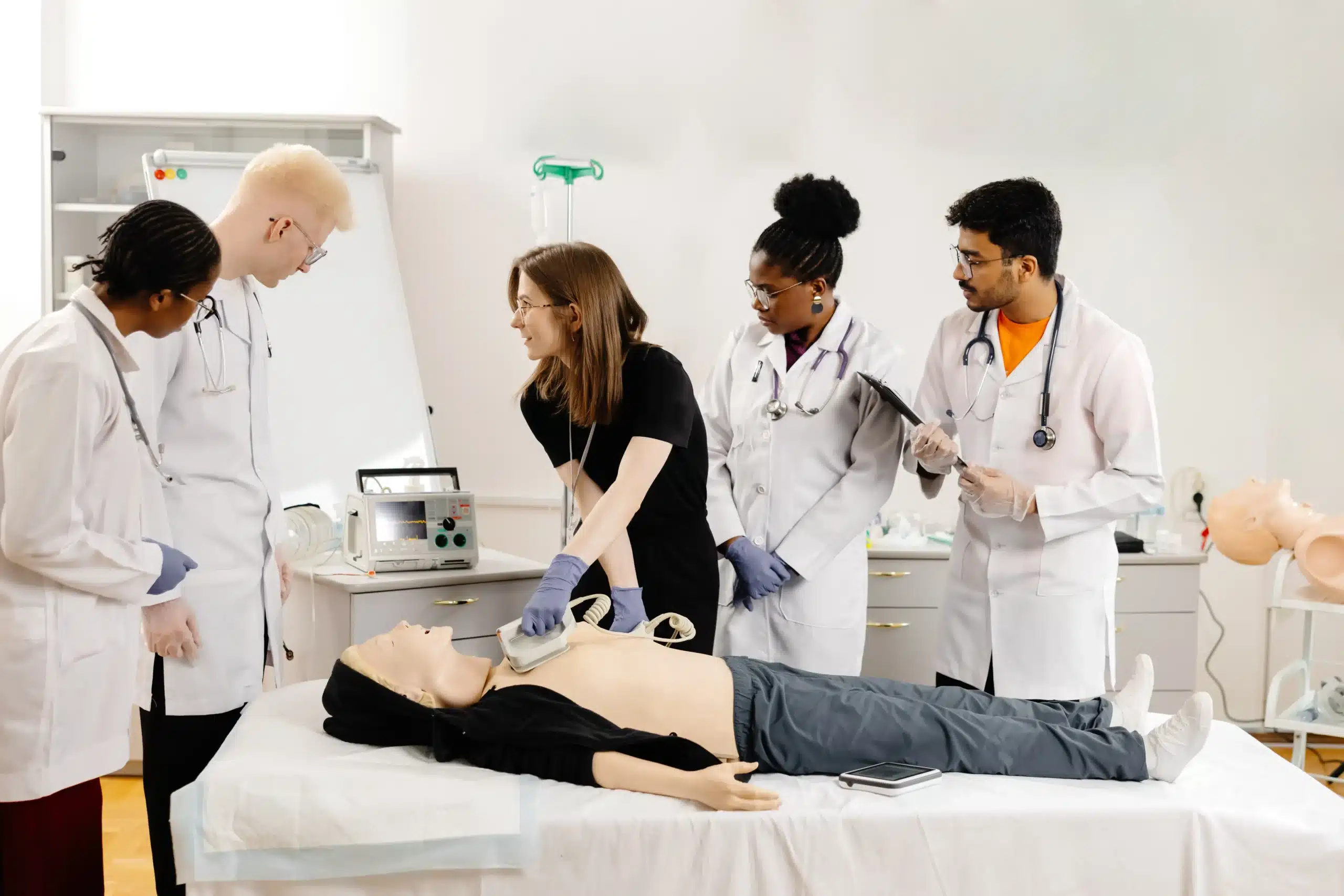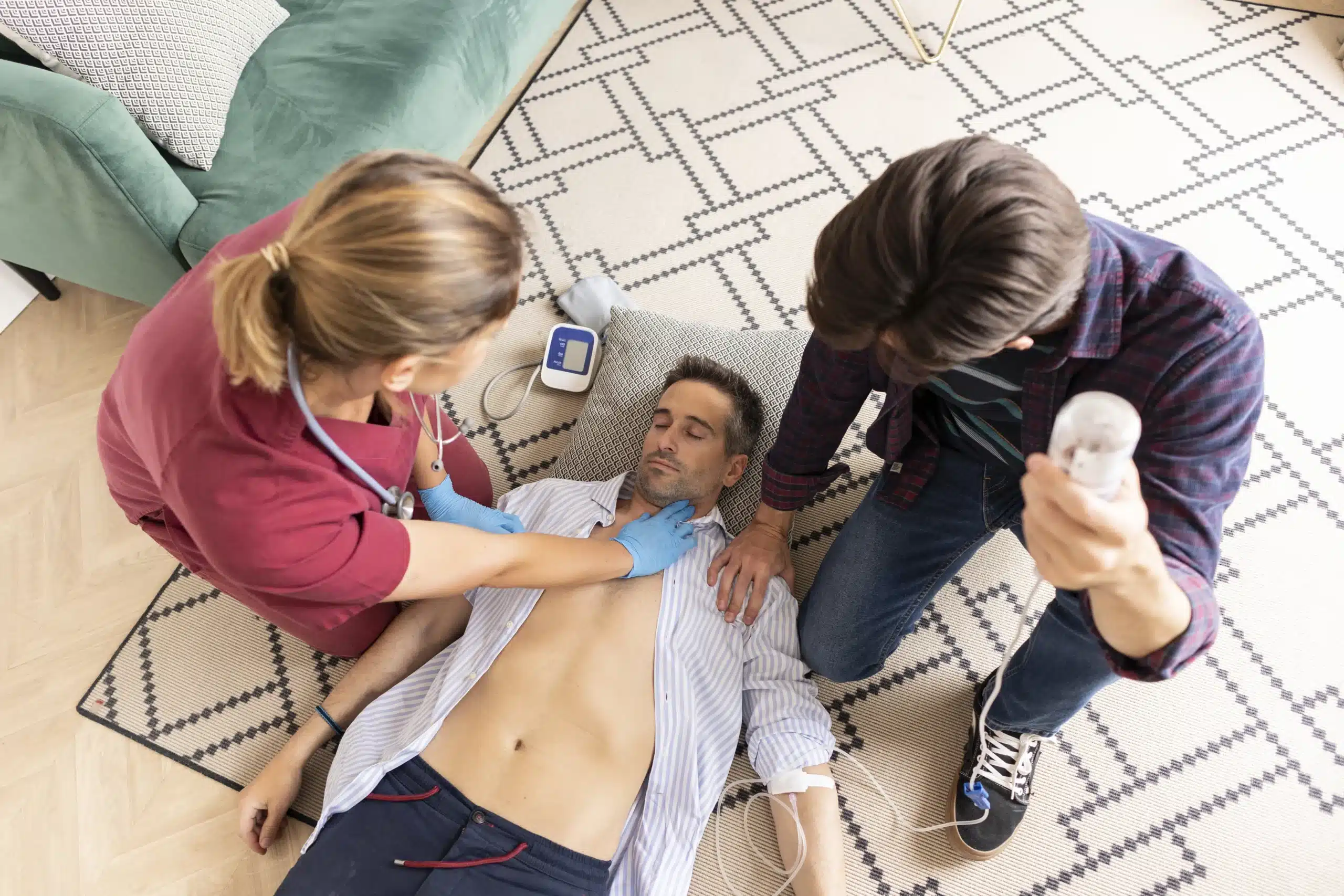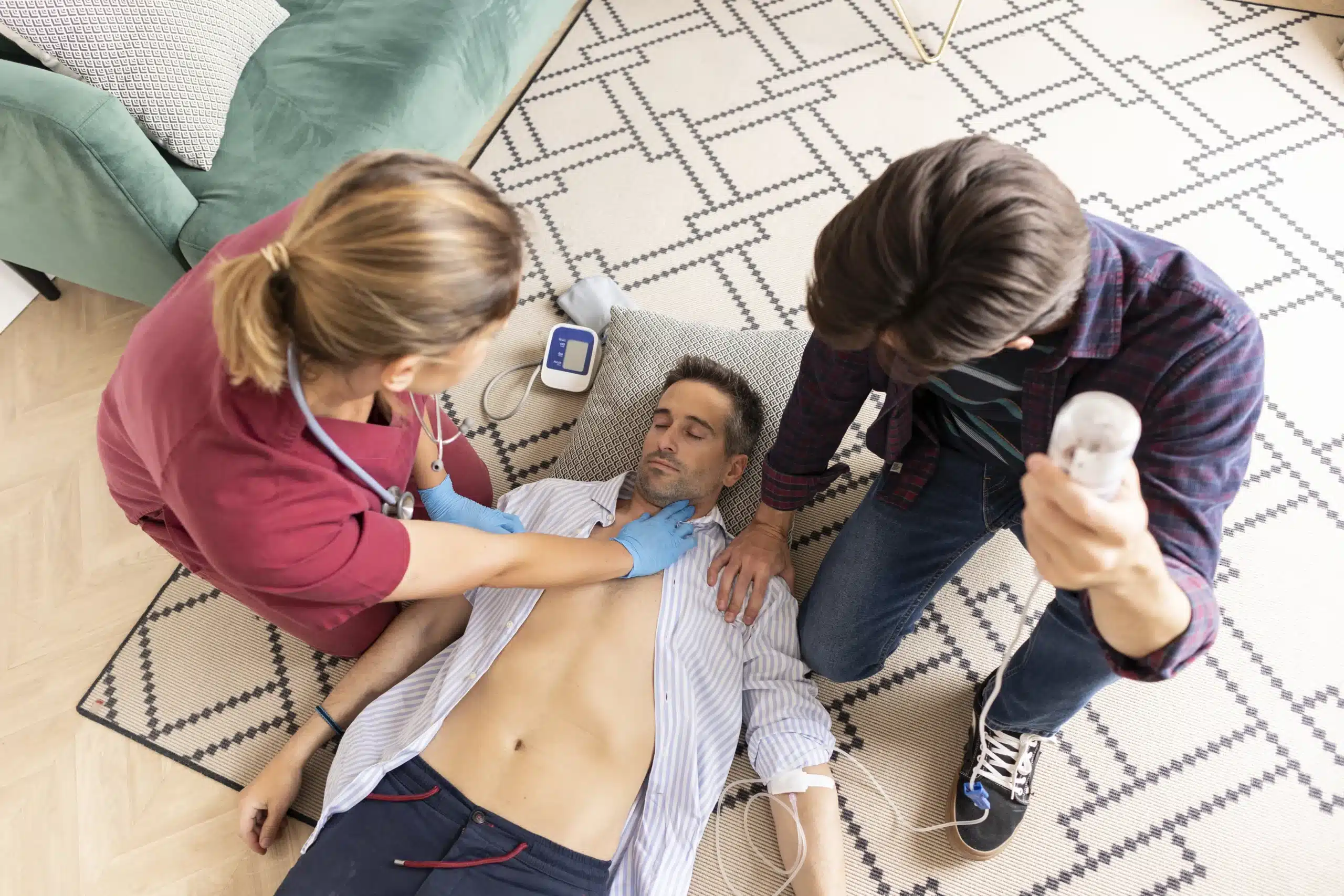Cardiopulmonary Resuscitation (CPR) is a remarkable intervention designed to save lives during critical moments of cardiac arrest. Statistically, CPR can double or even triple a person’s chance of survival—and for many, it serves as a second chance at life. But surviving CPR doesn’t just come with physical challenges; it often leaves people grappling with unexpected emotional and mental struggles.
This blog will explore the psychological recovery for CPR survivors, illuminating the mental health hurdles they may face and providing practical strategies for coping. Whether you’re a survivor, a family member, or a healthcare professional, this guide offers valuable insights to support the path to recovery.
Understanding the Psychological Impact of CPR
While the physical trauma from cardiac arrest and CPR often receives attention, emotional and mental health recovery is just as vital. Survivors frequently experience a mix of immediate and long-term psychological effects.
Immediate Emotional Responses
Surviving a near-death experience is life-altering. Common immediate responses include feelings of fear, confusion, and anxiety. Many survivors report difficulty processing the trauma of the event itself. These emotions may manifest as Acute Stress Disorder (ASD), characterized by flashbacks, hypervigilance, and emotional numbness.
Long-Term Effects on Mental Health
The effects of CPR can extend long into the future, affecting survivors’ emotional well-being and mental health in profound ways. Studies suggest a significant number of CPR survivors experience conditions such as Post-Traumatic Stress Disorder (PTSD), depression, or survivor’s guilt.
- Post-Traumatic Stress Disorder (PTSD): Survivors relive the trauma through flashbacks or nightmares, leading to heightened anxiety and difficulty participating in daily life.
- Depression: Lingering sadness or hopelessness often sets in as survivors reflect on their near-death experience or cope with physical limitations post-CPR.
- Survivor’s Guilt: Questions like “Why me?” or “Why did I survive when others don’t?” plague some survivors, leading to feelings of guilt and self-doubt.
Additionally, many survivors report existential reflections on mortality. Experiencing a life-threatening event often shifts one’s worldview—leading to questions about personal purpose or priorities.
Statistics on Mental Health in CPR Survivors
A recent study in Resuscitation Journal found that nearly 50% of out-of-hospital CPR survivors experience lasting psychological symptoms, with PTSD reported in approximately 20%. Understanding the prevalence of these conditions sheds light on the importance of addressing mental health recovery comprehensively.
Coping Strategies for Survivors and Families
Addressing psychological recovery requires a multi-faceted approach, involving both personal commitment and a network of support.
Mindfulness-Based Techniques
Mindfulness practices can provide powerful tools for grounding survivors and soothing racing thoughts. Techniques such as meditation, journaling, and yoga are excellent for reducing anxiety and fostering emotional resilience.
Try this simple exercise at home:
- Mindful Breathing: Sit in a quiet space and focus on your breath. Breathe in deeply for four counts, hold for four, and exhale for six. Repeat for five minutes.
- Gratitude Journaling: Write down three things you feel grateful for each day. Gratitude can improve mental focus and lift your mood.
Support Networks
The role of community cannot be overstated. Surrounding yourself with trusted family members, friends, or others who’ve shared similar experiences can make a palpable difference.
- Support Groups: Many organizations, such as the American Heart Association, host forums and groups specifically for CPR survivors. These platforms allow survivors to share their stories and find solace in others’ experiences.
- Family and Friends: Encourage meaningful conversations with loved ones about your feelings. They are often your strongest allies in recovery.
Lifestyle Adjustments
Regaining a sense of normalcy is essential. Adopting healthy habits can help both survivors and their families feel more in control.
Here are key recommendations:
- Physical Activity: Engage in light exercises like walking or stretching, as approved by your doctor.
- Nutrition: A balanced diet fuels physical and mental recovery. Focus on whole foods rich in nutrients, such as leafy greens, lean proteins, and omega-3 fatty acids.
- Sleep Quality: Prioritize restful sleep by maintaining a consistent bedtime routine and limiting screen time before bed.
Seeking Professional Help
Sometimes, professional mental health guidance is the best step forward. Therapists or counselors trained in trauma or health-related stress disorders can offer invaluable support.
Tips for Choosing the Right Therapist:
- Look for professionals specializing in trauma recovery or cardiovascular health.
- Verify credentials and ask for client reviews if available.
- Consider therapists offering integrative approaches, combining emotional and cognitive therapies with relaxation methods.
Why Psychological Recovery is Essential
Helping survivors address the emotional toll of CPR is essential not just for their mental wellness, but for their physical recovery too. The mind and body are deeply connected—managing stress and fostering positive mental health can reduce overall strain on the body, accelerating healing.
Just as cardio rehabilitation strengthens the heart, psychological recovery strengthens the spirit. A comprehensive focus on both aspects leads to far better long-term outcomes.
Take Action to Empower Your Journey
Gaining knowledge about psychological recovery not only helps CPR survivors but also empowers those wanting to make a difference. Observing the following steps can significantly contribute to this cause.
- Learn CPR and First Aid: Equip yourself with the skills to save lives and better understand the recovery needs of survivors. Explore AHA-certified courses offered by Safety Training Seminars in Fairfield like CPR and First Aid, BLS, ACLS, or PALS.
- Promote Awareness: Share this article with someone who might benefit from understanding the psychological challenges of CPR recovery.
- Join Advocacy Efforts: Advocate for mental health resources in hospitals and rehabilitation programs tailored to cardiac arrest survivors.
Supporting Resilience in CPR Survivors
Recovering from a life-altering event like surviving CPR is an emotional and physical marathon. Whether as a survivor or a supporter, it’s important to remember that healing takes time—but it is always possible.
Every CPR survivor you meet carries a story of resilience. By focusing on psychological recovery, we honor their strength and provide a path toward not just surviving, but thriving.
Take that step today by exploring CPR and life-saving training opportunities through trusted programs. Together, we can create a world where support and understanding are as integral to recovery as the lifesaving technique itself.






